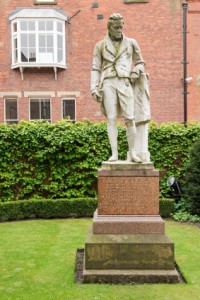 One thing being a trial lawyer has taught me is how to ask questions, lots of questions. This skill is particularly helpful when it comes to studying the Bible. The good news is you don’t have to be a lawyer to use this skill. Here’s how you can apply it to get more out of your Bible study time.
One thing being a trial lawyer has taught me is how to ask questions, lots of questions. This skill is particularly helpful when it comes to studying the Bible. The good news is you don’t have to be a lawyer to use this skill. Here’s how you can apply it to get more out of your Bible study time.
When I read a passage in the Bible I ask the questions, Who? What? When? Why? Where? How? Take, for example, Acts 17:19 which recounts part of Paul’s visit to Athens: “And they took him and brought him to the Areopagus, saying, ‘May we know what his new teaching is which you are proclaiming.'”
Who took him (Paul)? Why did they take him to the Areopagus? What is the Areopagus? Where is the Areopagus? When did this take place? How long did it take to get to the Areopagus? What did Paul do when he got there? These are some of the questions I would ask.
Answering questions like these make the story come to life by eliciting context and details from which you can derive meaning and instruction. Sometimes answers to the questions are found in the surrounding scriptures. Sometimes you must resort to Bible study aids. But asking questions is where it starts.
I studied Acts 17 Sunday before heading out to the Areopagus in Athens. One of the questions I asked as I read these verses was “How long did it take Paul to get from the market place to the Areopagus?” If I had done some research I probably could have found out, but I was going there anyway.
So, I walked from the ruins of the market place to the Areopagus. It’s a good walk up a steep incline toward the Acropolis, and it took about 15 minutes. This surprised me because I always assumed these men just took Paul across the street. In answering this question, though, I realized that Paul probably had some time to think about what he was going to say and contemplate the potential danger of before he preached to the Athenian Supreme Court (“What is the Areopagus?”), yet he didn’t back down. He was one tough dude. It inspires me to be bolder and more strategic in sharing the Gospel.
So, next time you study the Bible, just go Denny Crane or Perry Mason on the text. You might be surprised at what you discover. GS

